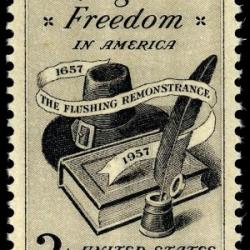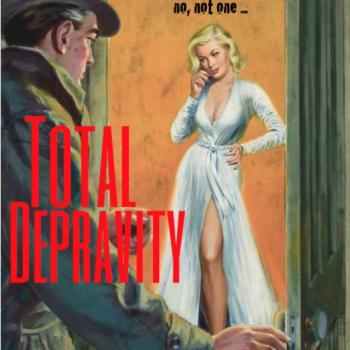Sorcery is illegal in Saudi Arabia, a crime punishable by death.
Some of the activities apparently covered by this law — fortune telling, the lifting or leveling of “curses” — are ancient cons, scams perpetrated to fleece the gullible. Laws protecting Saudi citizens from such scams might make sense, although the death penalty for low-end grifters does seem a bit excessive.
But apparently those hoary rackets preying on the superstitious are not what the Saudi law is designed to restrict. The Saudi law, rather, prohibits actual sorcery — actual fortune telling and the actual lifting of actual curses. So this is not a situation in which the government of Saudi Arabia is trying to protect naive and foolish people who have fallen prey to superstition. This is a situation in which the Saudi government has itself embraced such superstition.
The government of Saudi Arabia believes in sorcery. It has officially declared that magic is real.
Lebanese TV host Ali Hussain Sibat has been condemned to die for the crime of consulting genies to make predictions about the future. He was not arrested and sentenced as a con-artist who falsely claimed to consult genies. And although he was arrested and sentenced by Saudi Arabia’s “religious police,” he was not charged with the crime of heresy, of believing or spreading religious error. Consulting genies is not, according to the Saudi government, heretical. Sibat is not accused of teaching untruths, but of applying forbidden truths.
The very existence of a “religious police” charged with enforcing laws against heresy is one form of political and religious disaster. Heresy laws mingle church and state to the detriment of both. They expose a lack of faith in the official faith that suggests it is unable or unworthy of surviving on its own merits while at the same time turning state officials into religious tyrants. Such religious tyranny is the rule in Saudi Arabia, where religious dissent is not tolerated and the official faith is propped up by officials who do not think it can stand without the aid of coercion.
Saudi Arabia’s laws against sorcery, it seems to me, are incompatible with its laws against heresy. The heresy laws are based on the idea that there is one and only one true religion. The sorcery laws are based on the idea that other religious beliefs may be powerfully true, but yet forbidden. The state cannot condemn a person for sorcery without thereby taking the official position that sorcery is true and real and powerful. And thus the state cannot enforce its own anti-sorcery law without itself violating its own anti-heresy law.
You may be wondering how it was possible for the Saudi state to convict and condemn Ali Hussain Sibat of consulting jinn, given that no one, ever, in the entire history of the world has ever managed to prove that such genies exist, let alone that they have had any contact with this particular Lebanese TV host. Securing such a conviction would seem a steep legal challenge, akin to convicting a person of criminal conspiracy for their role assisting in an alien abduction.
Fortunately for the Saudi authorities, their “justice” system does not require evidence. Saudi Arabian justice is not just lacking anything like the American First Amendment, guaranteeing religious freedom, it’s also lacking any equivalent to our Fifth Amendment, guaranteeing freedom from coerced self-incrimination. The Saudi government coerced Ali Hussain Sibat into confessing, then had the audacious dishonesty to treat this manufactured self-incrimination as “proof” of his alleged crime. And for those who regard such “proof” as in any way meaningful, Sibat’s confession also “proves” the existence and efficacy of genie fortune telling. That makes these Saudi officials both tyrants and superstitious fools.
I regard a distinction between religion and superstition as theologically very significant. Religion is belief in something that cannot be proved. Superstition is belief in something that can be disproved.
But that distinction is not and must never be legally significant. If someone wants to believe in genies or Smurfs or in the divinity of Alex Trebek, then no state has the right to interfere with the free exercise of that belief. Any state that begins treating religious believers differently based on the content of their particular beliefs or superstitions winds up effectively enforcing laws against heresy. And any state enforcing laws against heresy is, by definition, tyrannical.
There’s a disturbing amount of confusion on that point here in America, even among officials and journalists who ought to know better. Pam Spaulding offers up the appalling example of Oklahoma lawmaker Sally Kern, who said:
I am not saying everyone has to be Christian; this is not a homogenous
nation. What you have to be is someone who believes in a
Judeo-Christian ethic, in other words, in knowing there’s a right and
wrong. Not all lifestyles are equal; not all religions are equal.
Kern is, at least, candid about her religious bigotry and her belief that heretics shouldn’t have the same rights and legal protections as members of the hegemonic majority enjoy. But the same views are often expressed in subtler ways than can be more insidious than someone like Kern trumpeting her idiocy.
Take for example CNN’s recent attempt to sensationalize its sudden realization that followers of Santeria practice animal sacrifice. “Remains of more than 500 animals found at Philadelphia home,” the headline read, and the entire article casts the story in as lurid a light as possible, transparently hoping to recapture the sick thrill (and ratings) of that earlier story about the crazy lady in New York who tortured and killed dozens of cats and dogs. The story flies past an offhanded acknowledgment that most of the “more than 500 animals” were chickens and adopts throughout a tone that aims to make this sound like something out of “Angel Heart.”
The article portrays Santeria as weird and alien due to its syncretistic admixture of Christian and pre-Christian rituals. I can’t really offer an objective view of that portrayal just now, seeing as I have a 7-foot fir tree adorned with lights in my living room signifying a celebration of the birth of Christ.
The CNN article’s sleazy sensationalism isn’t my main complaint, though. My main problem is this sentence, which is simply not accurate:
The U.S. Supreme Court has ruled that rituals of Santeria — a religion
similar to voodoo and originated in Cuba and Brazil — are permitted
under the Constitution.
No. The Supreme Court of the U.S. did not rule that the free exercise of Santeria is “permitted.” It ruled, unambiguously (9-0), that the free exercise of Santeria is protected.
This is not a minor distinction. People like Sally Kern — or like Chuck Colson and Robert George and everybody they got to endorse their “Manhattan Declaration” — like to think that their particular religion is protected by the First Amendment while other, less widely held religions are merely “permitted,” merely tolerated out of a benign condescension. But the First Amendment does not make or allow for any such distinction.
If it did, then America would require a Saudi-style “religious police” to enforce laws dependent on the content of religious beliefs. A legal category of “heretical, but permitted” could not long exist without realizing the implied additional legal category of “heretical and prohibited,” and neither category is compatible with religious freedom. It is not possible to make legal judgments regarding the content of religious belief without enforcing laws against heresy. And it is not possible to enact and enforce laws against heresy without religious tyranny.
The hallmark of all religious tyrants and of all would-be-tyrant religious bigots is a weak and fragile faith. This is the thread that ties together the Saudi princes and the Oklahoma morons and the fatuous pseudo-intellectuals of the Manhattan Declaration. None of them believes their religion can compete and thrive without a legally supported monopoly.
O ye of little faith.
(I haven’t time today to discuss how this all relates to the new Irish statutes enabling the prosecution of “blasphemy,” but we’ll get to that next. In the meantime, if you’re so inclined, Amnesty International has information on the case of Ali Hussain Sibat and how you might take action to appeal for his life. If you do choose to write on his behalf, try not to be as disdainfully disrespectful of those authoritarian fools as I am above.)












